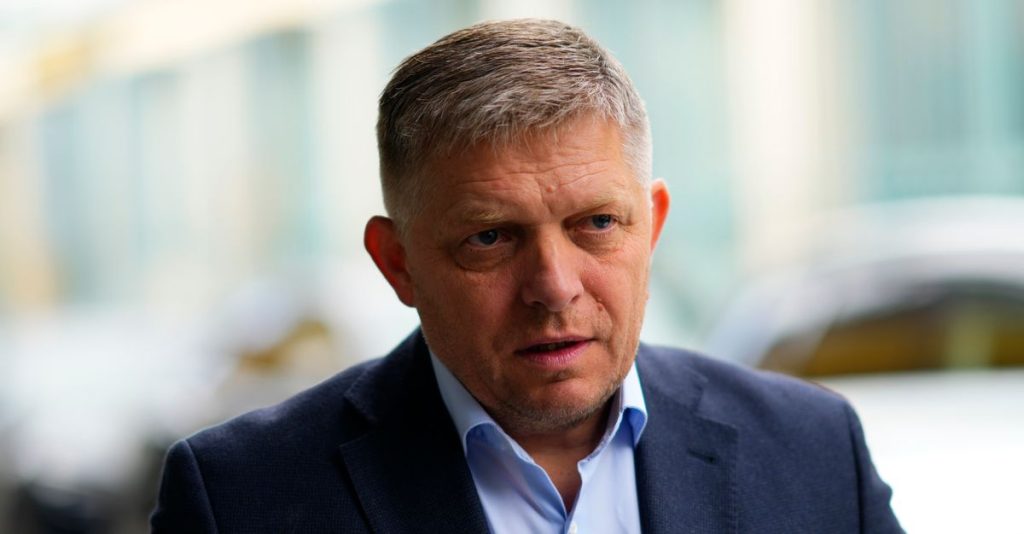Slovak Prime Minister Robert Fico was seriously injured in an assassination attempt and remains in stable condition. The suspect, a 71-year-old retiree and amateur poet, was ordered to remain in custody by the Specialized Criminal Court due to fears of escaping or committing further crimes. Although the suspect was not affiliated with any political groups, the attack was deemed politically motivated. The courthouse in Pezinok, Slovakia, where the suspect appeared for his first court hearing, was heavily guarded with restricted media access.
Fico underwent surgery to remove dead tissue from multiple gunshot wounds, with a positive prognosis for recovery. Despite his improving condition, he was unable to be transferred to a hospital in Bratislava. The suspect was apprehended by authorities after the attack occurred as Fico was meeting with supporters. Prosecutors sought a court order to detain the suspect, who remains unnamed to the public. Unconfirmed reports suggest he may have worked as a mall security guard at some point.
Police conducted a search of the suspect’s home in Levice, seizing a computer and documents as evidence. The motive for the assassination attempt remains unclear, as authorities have not disclosed how the suspect acquired a firearm. Slovakia has strict regulations on gun ownership, and gun owners must provide a valid reason for possessing a firearm. World leaders expressed condemnation of the attack and offered support for Fico and Slovakia, reflecting concerns over political stability in the region.
Fico’s return to power on a pro-Russia platform raised concerns among EU and NATO members about Slovakia’s foreign policy stance, particularly regarding Ukraine. His government actions, including halting arms deliveries to Ukraine and proposed changes to public broadcasting and anti-graft legislation, have sparked widespread protests and accusations of autocratic tendencies. Fico has faced opposition from critics who fear a shift towards authoritarianism and the erosion of democratic norms, prompting calls for greater political accountability and transparency.
The shooting incident underscores the challenges faced by Slovakia in balancing internal political dynamics with external pressures to uphold democratic values and human rights. The ongoing investigation into the assassination attempt will shed light on the motives and circumstances surrounding the attack. Fico’s health remains a concern, but the successful medical intervention and supportive measures indicate a hopeful outlook for his recovery. As the case unfolds, Slovakia will continue to grapple with the implications of the incident on its political landscape and national security.


